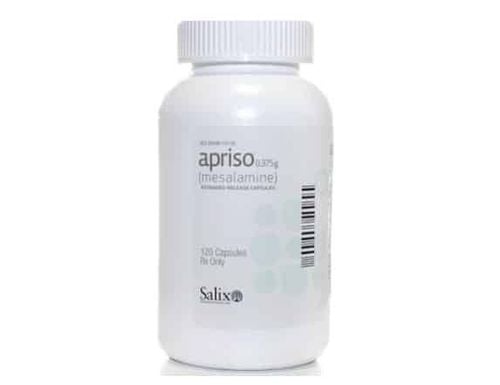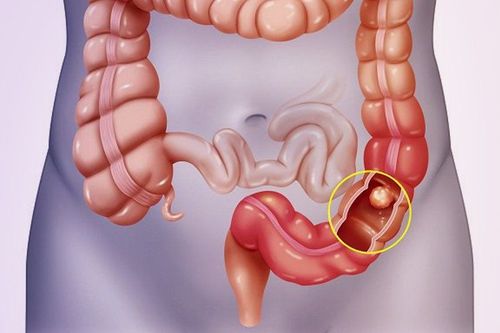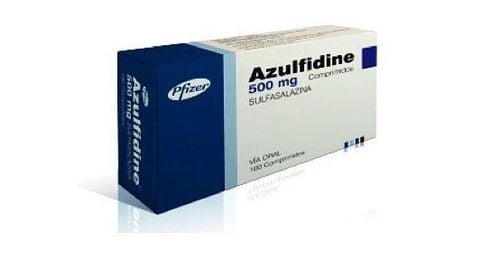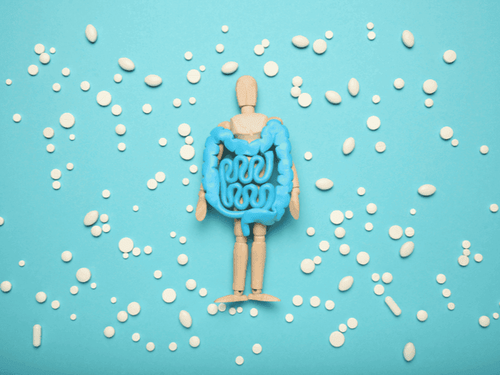This is an automatically translated article.
The article was written by MSc Mai Vien Phuong - Department of Examination & Internal Medicine, Vinmec Central Park International General HospitalImplementing and following the tips below will help patients with ulcerative colitis can be in remission and control of the condition. We can still eat well and lead a healthy life if we know how to build a scientific lifestyle that both treats diseases and improves health.
1. Medicines for remission
When you go into remission, your ulcerative colitis symptoms should improve. Remission is often a sign that your treatment plan is working. It is likely that you will use medication to put you in remission.
Medications to treat and relieve ulcerative colitis may include:
5-aminosalicylate (5-ASAs), such as mesalamine (Canasa, Lialda, Pentasa) and sulfasalazine (Azulfidine) Biologics: infliximab (Remicade) , golimumab (Simponi) and adalimumab (Humira) Corticosteroids Immunomodulators

2. Take control of your stress
Some stress is inevitable, but try to avoid stressful situations when you can. Try to create a lifestyle with as little stress as possible.
Quit smoking: If other people in your family smoke, make a plan to quit together. Not only will this eliminate the urge to smoke, but it will also help you support each other.
3. Regular health check
Your doctor will probably recommend regular checkups.
Stick to the schedule. If you suspect a flare or if you start experiencing any side effects from your medication, contact your doctor.
4. Exercise
Try to exercise at least 30 minutes five times per week. This is an American Heart Association (AHA) recommendation for physical activity in adults.
Exercise can include anything from climbing stairs to brisk walking around the block.

5. Maintain a healthy diet
Certain foods, such as those high in fiber, can increase the risk of flare-ups or make it harder to digest.
Keep a diary of recurrent episodes, this will help your doctor adjust your medication dosage:
What did you eat? How many pills did you take that day? Other activities you've been involved in Use a food diary to help identify your trigger foods. Although everyone reacts differently to foods, there are some foods you may need to avoid or eat in smaller amounts:
Spicy Salty Fat Greasy Made with Milk High in fiber Alcoholic beverages
Please dial HOTLINE for more information or register for an appointment HERE. Download MyVinmec app to make appointments faster and to manage your bookings easily.
References:
American Heart Association recommendations for physical activity in adults and kids. (2018). heart.org/en/healthy-living/fitness/fitness-basics/aha-recs-for-physical-activity-in-adults The facts about inflammatory bowel diseases. (2014). crohnscolitisfoundation.org/sites/default/files/2019-02/Updated%20IBD%20Factbook.pdf Ko CW, et al. (2019). AGA clinical practice guidelines on the management of mild-to-moderate ulcerative colitis. DOI: 10.1053/j.gastro.2018.12.009 Mayo Clinic Staff. (2019). Ulcerative colitis. mayoclinic.org/diseases-conditions/ulcerative-colitis/symptoms-causes/syc-20353326 Medication adherence - taking your meds as directed. (n.d.). heart.org/en/health-topics/consumer-healthcare/medication-information/medication-adherence-taking-your-meds-as-directed Moss AC. (2014). Residual inflammation and ulcerative colitis in remission. ncbi.nlm.nih.gov/pmc/articles/PMC4014050 Rubin D, et al. ACG Clinical Guideline: Ulcerative colitis in adults. (2019). DOI: 10.14309/ajg.0000000000000152 Rungoe C, et al. (2015). Inflammatory disease and cervical neoplasia: A population-based quality cohort study. DOI: 10.1016/j.cgh.2014.07.036














